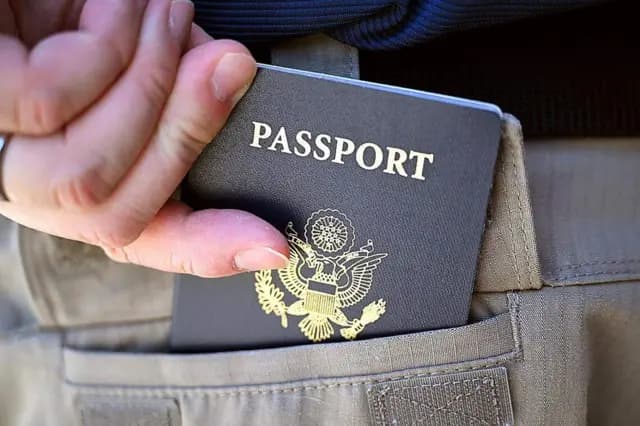We're loading the full news article for you. This includes the article content, images, author information, and related articles.
Mali's decision to require a visa bond for American travellers mirrors a recent US policy targeting Malian nationals, escalating diplomatic tensions and potentially impacting business and tourism.

Mali's Ministry of Foreign Affairs announced on Sunday, October 12, 2025, that it will require US citizens applying for visas to post a bond of up to $10,000 (approximately KES 1,470,000). This measure, set to take effect on Thursday, October 23, 2025, is a direct response to a similar policy implemented by the United States for Malian nationals.
The Malian government stated that this move is in accordance with the principle of reciprocity, imposing the same conditions and requirements on US nationals as those applied to Malian citizens.
The US Embassy in Mali's capital, Bamako, had announced on Friday, October 10, 2025, the implementation of a Visa Bond Pilot Program. This program requires Malian nationals seeking B-1/B-2 business or tourist visas to post a bond of $5,000 or $10,000 before their visa can be issued.
The US Department of State cited high overstay rates, screening and vetting deficiencies, and foreign policy considerations as reasons for its decision. The US policy is part of broader immigration enforcement measures, with similar requirements already in place for citizens of Malawi and Zambia since August 20, 2025, and for The Gambia since October 11, 2025. Mauritania, Sao Tome and Principe, and Tanzania are also included in the pilot program, effective October 23, 2025.
Mali's military leadership, which came to power following a 2021 coup, has increasingly distanced itself from Western allies, including France, and has forged closer security partnerships with Russia. This shift in foreign policy has been noted by analysts as a factor in the evolving relationship between Washington and Bamako.
Mali's Ministry of Foreign Affairs deplored the US government's unilateral decision, arguing that it undermines a 2005 bilateral agreement that guaranteed long-term multiple-entry visa access between the two nations.
The US Department of State's Visa Bond Pilot Program is established under INA Section 221(g)(3) and a Temporary Final Rule (TFR). The bond amount, which can be $5,000, $10,000, or $15,000, is determined during the visa interview based on the applicant's circumstances. Applicants must also submit a Department of Homeland Security Form I-352 and agree to the terms of the bond through the Department of the Treasury's online payment platform, Pay.gov.
The new visa bond requirements are expected to impact both business and tourism between the two countries. American companies with interests in Mali's mining sector, particularly gold and lithium, could be affected. Critics argue that such visa bonds create significant barriers for legitimate travellers and may not effectively address immigration concerns.
This diplomatic spat highlights growing tensions in US relations with several African nations. The imposition of visa bonds could strain bilateral cooperation and hinder efforts to address underlying issues that contribute to irregular migration. The economic implications for both countries, particularly in sectors reliant on international travel and investment, remain a concern.
It remains unclear how long these reciprocal visa bond requirements will remain in effect and what further diplomatic actions might be taken by either side. The long-term impact on trade, cultural exchange, and security cooperation between Mali and the US is yet to be fully assessed.
Observers will be watching for any further statements or negotiations between the Malian and US governments regarding these visa policies. The practical implementation of these bonds and their immediate effects on travellers and businesses will also be closely monitored. The broader implications for US diplomatic relations with other African nations facing similar visa restrictions will also be a key area of focus.
Similar visa bond requirements have been implemented by the US for citizens of Malawi, Zambia, The Gambia, Mauritania, Sao Tome and Principe, and Tanzania. Chad also suspended all visas for US citizens in June, following its inclusion on a US restrictive travel list.
Keep the conversation in one place—threads here stay linked to the story and in the forums.
Sign in to start a discussion
Start a conversation about this story and keep it linked here.
Other hot threads
E-sports and Gaming Community in Kenya
Active 9 months ago
The Role of Technology in Modern Agriculture (AgriTech)
Active 9 months ago
Popular Recreational Activities Across Counties
Active 9 months ago
Investing in Youth Sports Development Programs
Active 9 months ago